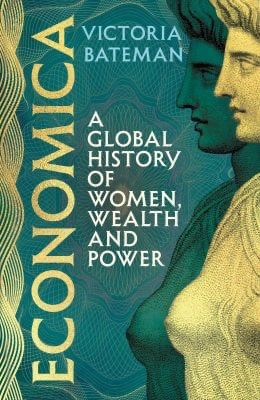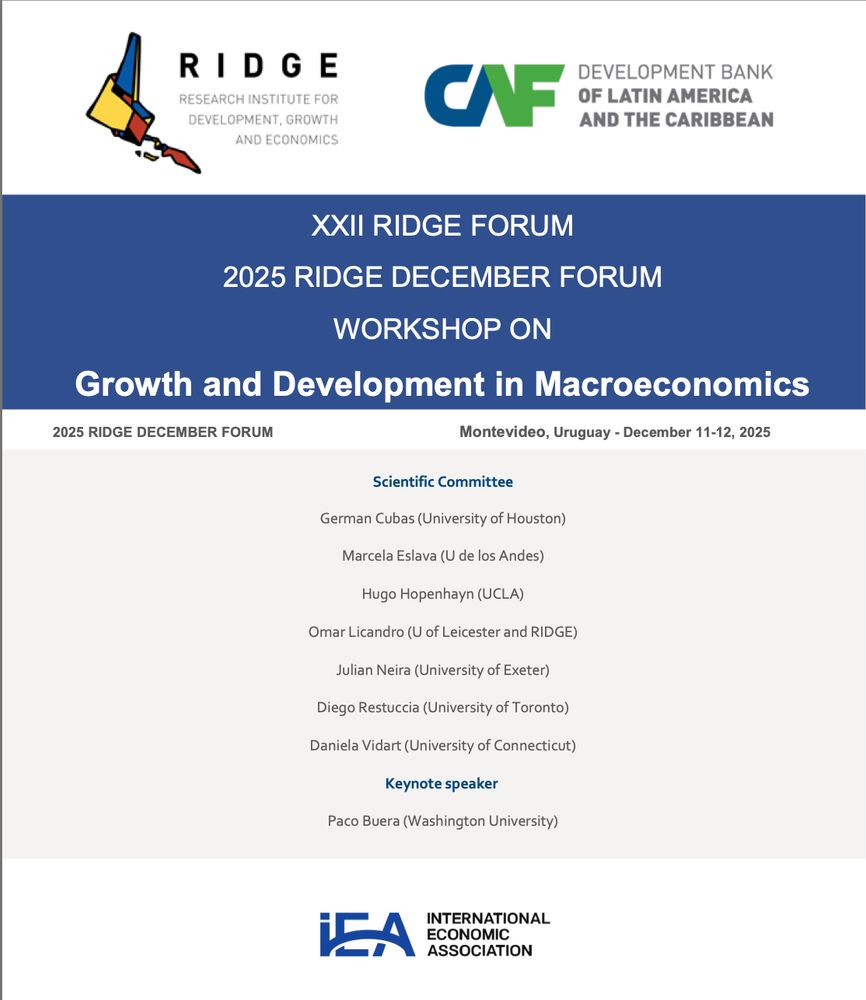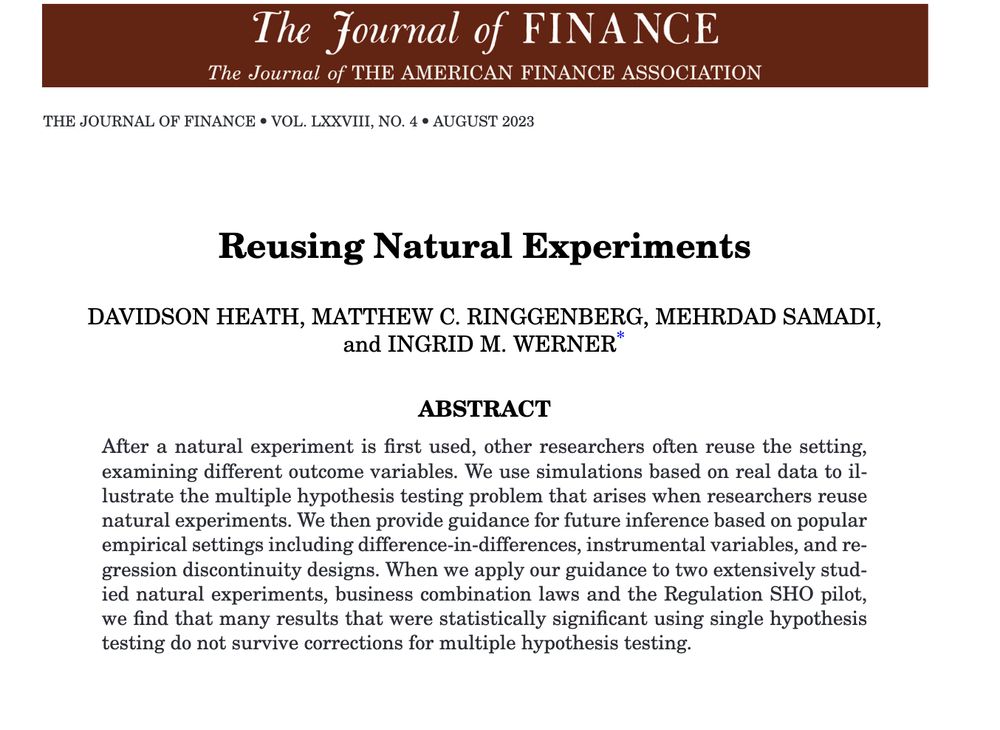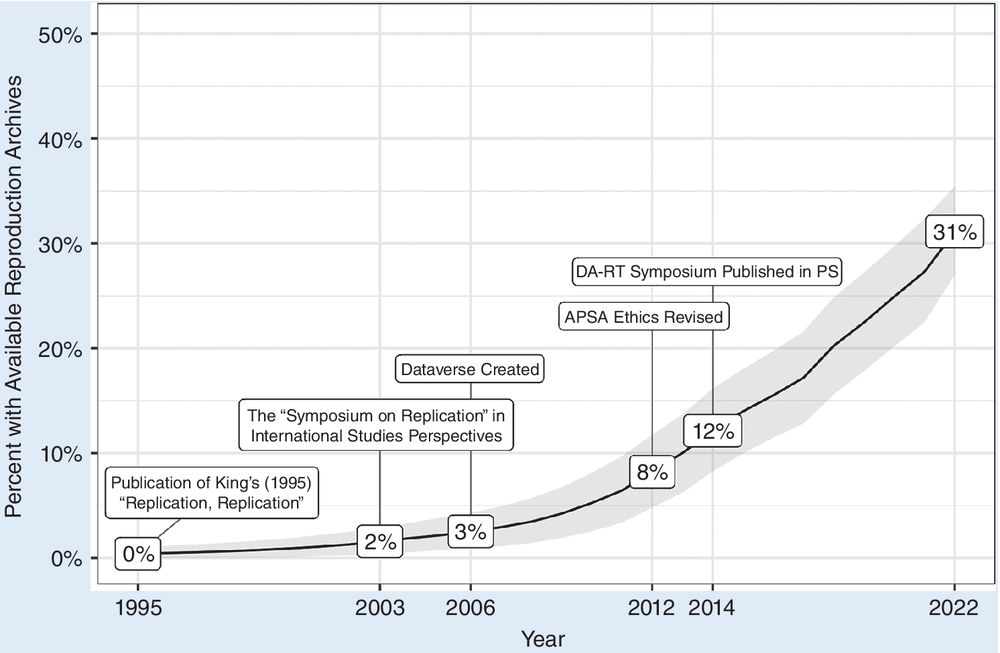
It will be a huge honour to deliver the 2026 #HajnalLecture at the University of Manchester. It will also be something of a homecoming: Manchester was not only the place I grew up, it shaped my love of Economic History. #Manchester #EconHist @manchester.ac.uk #ArthurLewisLab @nunopgpalma.bsky.social
30.10.2025 12:13 — 👍 8 🔁 2 💬 0 📌 0

There is still time to apply for the 2026 Datini-Ester seminar on "Craft Guilds & Unions"! All PhD students working on these topics are welcome to apply! Join us in beautiful Prato (Tuscany) for this funded experience! (deadline November 15)
www.istitutodatini.it/ester/htm/ca...
21.10.2025 07:22 — 👍 7 🔁 2 💬 1 📌 0
And shoutout to former LSE Economic History staff and PhD students Stephen Broadberry,
@cliochris.bsky.social and @nunopgpalma.bsky.social who have been cited as well. The scientific statement can be found here: www.nobelprize.org/uploads/2025...
13.10.2025 16:02 — 👍 4 🔁 1 💬 0 📌 0

Uses and abuses of the Murdock Atlas in social science research
CALL FOR PAPERS
A workshop at LSE next April on 'Uses and Abuses of the Murdock Atlas in Social Science Research'. We're looking for cross-disciplinary engagement to think critically about what this widely used source means, what it can & can't tell us. Submit by Nov 14
www.lse.ac.uk/economic-his...
08.10.2025 07:33 — 👍 20 🔁 14 💬 2 📌 0

#EconSky Another reminder that European economic history was a core element in the training of early 20th century economists. Consider Howard Levi Gray and Edwin Francis Gay's course offerings for 1909-10 at Harvard... www.irwincollier.com/harvard-euro...
23.09.2025 10:15 — 👍 7 🔁 3 💬 0 📌 0
🥳 Shameless self-promotion annoucement!
Honored to have received the Figuerola Prize for the best article published in the European Review of Economic History in the last 2 years, for «Anatomy of a Premodern State», with Lenor F. Costa & António Henriques!
07.09.2025 10:50 — 👍 10 🔁 0 💬 2 📌 0
Did you know that 40% of big game hunters in the Americas were women, and so too were 40% of brewers in medieval London? Find out about women’s involvement in the economy from the Stone Age to the present in my new book #Economica - out now @headlinebooks.bsky.social #econhist
28.08.2025 18:04 — 👍 5 🔁 2 💬 0 📌 0

Economica by Victoria Bateman | Waterstones
Buy Economica by Victoria Bateman from Waterstones today! Click and Collect from your local Waterstones or get FREE UK delivery on orders over £25.
Want to read an “erudite, ambitious & richly global” book that “sets a new standard in economic history”? Then my forthcoming book #Economica is for you. If you’re in the UK, for tonight only you can get 25% off if you preorder @waterstones.bsky.social: www.waterstones.com/book/economi... #SUMMER25
31.07.2025 17:28 — 👍 5 🔁 3 💬 0 📌 2

Keynote “Controlling Contagion: Epidemics and Institutions from Plague to Covid” | Radboud University
In this keynote lecture, prof. Sheilagh Ogilvie will explain how societies have historically managed epidemics through various social institutions.
Looking forward talking about “Controlling Contagion” at the Radboud Conference next week, and learning more answers to its key question: “How Did We Lift the Burden?” www.ru.nl/en/about-us/... @oxford-esh.bsky.social @timriswick.bsky.social @oxhistoryfaculty.bsky.social
21.08.2025 17:28 — 👍 8 🔁 2 💬 1 📌 0

‼️Come join us for the RIDGE Growth and Development in Macro Workshop!
December 11-12 in beautiful Montevideo🇺🇾
Submission deadline 👉 September 30
More info & submission link 👉 ridge.org.uy/wp-content/u...
15.08.2025 20:31 — 👍 5 🔁 1 💬 0 📌 1

"After a natural experiment is first used, other researchers often reuse the setting, examining different outcome[s]..."
"...we use simulations based on real data to illustrate the multiple hypothesis testing problem that arises when researchers reuse natural experiments."
18.08.2025 00:08 — 👍 28 🔁 7 💬 1 📌 1

Hostility toward homosexuality remains common in many of the world’s largest countries—
This chart shows the share of people who say homosexuality cannot be justified across five of the world’s most populous countries.
Together, these countries are home to nearly half of the global population.
18.08.2025 16:24 — 👍 55 🔁 10 💬 5 📌 6
Just four weeks to go until the publication of my new book #ECONOMICA: A Global History of Women, Wealth & Power @headlinebooks.bsky.social @hachetteuk.bsky.social on 28 August. It’s time to place women at the heart of economic history. #womenwealthpower #econhist
31.07.2025 10:39 — 👍 35 🔁 5 💬 3 📌 1

This figure shows the percent of political science articles that at least have a reproduction archive. {a pretty low bar in and of itself, but still}
Steady improvement, but still a long way to go!
01.08.2025 13:36 — 👍 20 🔁 4 💬 2 📌 3

Deadline tomorrow for the “New Economic History of Brazil” conference in September. Come join us in the historical district of Belém in Lisboa! Details: nofuturepast.wordpress.com/2025/01/17/c...
25.05.2025 10:09 — 👍 1 🔁 1 💬 0 📌 0
Thilo N. H. Albers - Job ads
2 years postdoc with a thematic focus on Migration, Diaspora, Citizenship
We are looking to hire post-doc interested in working on migration, citizenship, and diaspora. Come join us in Münster! Generous contract + no teaching for 2 years.
Many details and link to job add here:
sites.google.com/site/tnhalbe...
Please PM me incase you have questions!
17.05.2025 09:30 — 👍 15 🔁 18 💬 1 📌 2

A pleasure to talk about serfdom and my Leverhulme project yesterday at the Arthur Lewis Lab for Comparative Development. @oxford-esh.bsky.social @arthurlewislab.bsky.social @leverhulme.ac.uk #echist
16.05.2025 16:03 — 👍 7 🔁 4 💬 0 📌 0
🧩 The takeaway?
Institutions also operate locally. Local legal actors — even unpaid ones — can shape economic trajectories in powerful ways.
The state was heavily involved with the First Industrial Revolution.
Link to the paper:
documents.manchester.ac.uk/display.aspx...
7/7
01.05.2025 18:13 — 👍 0 🔁 0 💬 0 📌 0
JPs helped towns capitalize on the Industrial Revolution:
⚙️ Industrial towns near coalfields grew faster with more JPs;
📈 JPs helped enforce contracts, settle disputes, and foster trust;
The effects appear gradually over time! The choice of the outcome year is not critical.
6/7
01.05.2025 18:13 — 👍 0 🔁 0 💬 1 📌 0

Crucially, the location of JPs in 1700 was not driven by anticipated growth — meaning the effect is causal, not just correlation.
In other words: more JPs → better long-term development outcomes. 5/7
01.05.2025 18:13 — 👍 0 🔁 0 💬 1 📌 0

We find that counties with more JPs in 1700 saw:
✅ Higher population growth
✅ Faster urbanization
✅ Greater economic diversification
✅ More infrastructure and innovation
✅ Better human capital (via apprenticeships)
4/7
01.05.2025 18:13 — 👍 0 🔁 0 💬 1 📌 0

🔍 Who were the JPs?
They were local elites—usually unpaid, but powerful—tasked with matters from contract enforcement to infrastructure oversight.
Their presence made legal systems more accessible, faster, & cheaper—especially in an age before a professional paid bureaucracy 3/7
01.05.2025 18:13 — 👍 0 🔁 0 💬 1 📌 0

We often hear the state had little to do with Britain’s Industrial Revolution. We argue otherwise.
Using novel data, we show that “street-level” legal capacity, via JPs, played a crucial role in enforcing property rights, resolving disputes & managing public goods. 2/7
01.05.2025 18:13 — 👍 0 🔁 0 💬 1 📌 0

How did local legal institutions power the British Industrial Revolution?
In a new working paper (with Tim Besley, Dan Bogart, and Jonathan Chapman @jnchapman-econ.bsky.social, we show that Justices of the Peace — magistrates acting locally — were a quiet engine behind modern economic growth. 🧵👇1/7
01.05.2025 18:13 — 👍 7 🔁 4 💬 1 📌 0

“Among articles stating that data was available upon request, only 17% shared data upon request.”
30.04.2025 22:43 — 👍 70 🔁 22 💬 6 📌 2
Economics Professor at Chapman University. President of ASREC. Author of Rulers, Religion and Riches http://amzn.to/3luy5qe and How the World Became Rich http://amzn.to/2ZZJetD
https://www.jaredcrubin.com/
https://www.howtheworldbecamerich.com/
Economic historian @ tcd.ie and ceph.ie
Economic & intellectual history, political economy
Author of "The Nationalist Dilemma: A Global History of Economic Nationalism" (2023, CUP)
marvinsuesse.com
The Cambridge Working Papers in Economic and Social History showcases research by staff, students and affiliates in Cambridge, working on all periods and domains of economic history.
Learn more at https://www.econsoc.hist.cam.ac.uk/working_papers.php
Trade/economic history @Dartmouth College @Peterson Institute for International Economics Website: https://sites.dartmouth.edu/dirwin/
A UniBocconi centre for social science research: #Politics and #Institutions, #Population Dynamics and #Health, and #Welfare State and #Taxation.
Economic historian & Historical demographer at Bocconi University, Milan. Affiliated scholar of the Stone Center on Socio-Economic Inequality, NY.
Working on the history of inequality and social mobility and on the history of pandemics & other catastrophes
Economic historian, AP at University of Southern Denmark.
I work with big data from parish records and genealogies. Interested in historical demography, social mobility, and human capital.
Postdoc UPenn and PISM | GMU PhD | Economic History, Political Economy, and Economic Growth
patrubenfitz.com
Free range historian of economics. Curator of Economics in the Rear-view Mirror (irwincollier.com)
GIRO: Medieval Finance Network │Connects scholars working on financial history of the Middle Ages│RT news - publications - cfp
Visiting Associate Professor at Stanford University
Writing "The Great Gender Divergence"
Substack: www.ggd.world
Historian @ Stanford | https://sites.google.com/view/walterscheidel/home
MIT Robert M. Solow Professor of Economics | Macro, International, Public, Monetary, Taxes, Finance | v = u + β v | Beatles | Boston | Argentina | Patagonia
Economic historian. Associate Professor at the University of Pittsburgh and Research Associate at the NBER. https://andreas-ferrara.com/
I am an Economist leveraging the assignment mechanism in the field to test theory and help non-profits, govts, and anyone who will listen! My goal is to (hopefully!) change the world for the better. My picture is with my oldest son!
Lover of ⛰️🏔s, 🐕 🐾s, econ history.
UC Davis economic historian
Kaerikss.faculty.ucdavis.edu
Bennett Professor of Public Policy, University of Cambridge; economist
Economist, historian, (CUNY) professor, CEPR & Maddison research fellow, aspiring map-maker, dog lover, Argentinean, American by choice; not necessarily in that order.





















